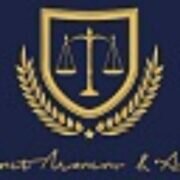Best Pension Lawyers in DR Congo
Share your needs with us, get contacted by law firms.
Free. Takes 2 min.
Or refine your search by selecting a city:
List of the best lawyers in DR Congo
About Pension Law in DR Congo
Pension law in the Democratic Republic of the Congo (DR Congo) is a vital aspect of social welfare, designed to provide financial security for retirees. The pension system in DR Congo primarily revolves around the National Social Security Institute (Institut National de Sécurité Sociale, INSS), responsible for administering mandatory pension plans for employees. The system covers retirement, disability, and survivor benefits, subject to eligibility based on contribution history and age. While the system aims to provide a safety net, navigating the complexities of pension law can be challenging for many citizens.
Why You May Need a Lawyer
There are several scenarios where individuals may require legal assistance regarding pensions in DR Congo:
- Dispute Resolution: Disagreements over benefits, contributions, or eligibility criteria may necessitate legal intervention to resolve.
- Pension Plan Management: Understanding the terms and conditions of pension plans can be complex, and a lawyer can help decipher these details.
- Fraud or Mismanagement: Instances of fraud or improper management of funds may require legal action to protect an individual's rights.
- Employment Transition: Navigating pension benefits during job changes, retirement, or expatriation requires legal guidance to ensure all entitlements are met.
- Extended Benefits: Individuals with disabilities or survivors of deceased workers might need help claiming extended benefits.
Local Laws Overview
The pension system in DR Congo is primarily governed by the Labor Code and various decrees and regulations governing social security. Key elements of the pension system include:
- Eligibility: Employees typically qualify for pension benefits based on reaching a specific age and having made a certain number of contributions.
- Contribution Requirements: Both employers and employees are required to contribute to the social security system, which finances the pension fund.
- Benefit Calculation: Pension benefits are calculated based on the employee's salary and the length and amount of contributions.
- INSS Role: The INSS is responsible for tracking contributions, determining eligibility, and distributing pension benefits.
- Complementary Systems: Besides the national system, some employers may offer supplemental or private pension plans.
Frequently Asked Questions
1. Who is eligible for a pension in DR Congo?
Eligibility typically depends on reaching the statutory retirement age and having made the requisite number of contributions to the INSS.
2. How are pension benefits calculated?
Pension benefits are generally calculated based on the average salary during the insured career and the total number of contributions made.
3. Can pensions be inherited?
Pension benefits can be partially transferred to surviving family members, such as a spouse or children, under certain conditions outlined by the INSS.
4. What happens if I haven't made enough contributions?
If you haven't met the contribution requirements, you may not qualify for full pension benefits. Alternative options or benefits might be pursued.
5. Can expatriates receive pensions in DR Congo?
Expatriates may receive pensions if they contributed to the INSS while working in DR Congo, in accordance with bilateral agreements or local laws.
6. What should I do if there's a dispute over my pension?
Disputes can be resolved by consulting a lawyer and potentially filing a claim with the relevant authorities or pursuing mediation.
7. Are private pension plans available?
Yes, some employers offer additional pension plans. It's important to read and understand the terms of these plans.
8. How can I check my contribution record?
You should contact the INSS or consult their platforms to access detailed records of your contributions and potential benefits.
9. What legal documents are required to claim pension benefits?
Commonly required documents include an employment history, contribution records, identity verification, and sometimes medical certificates.
10. Is there a pension for disabilities?
Yes, the INSS provides benefits for eligible individuals who have become disabled either during their career or after retirement.
Additional Resources
For further assistance regarding pensions in DR Congo, consider the following resources:
- National Social Security Institute (INSS): The primary body for managing pensions in DR Congo.
- Labor Ministry: Provides information on labor laws and regulations affecting pensions.
- Legal Aid Services: Non-profit organizations and NGOs that provide legal assistance and advice.
- Professional Legal Firms: Engage reputable law firms with specialists in labor and social security law.
Next Steps
If you require legal assistance regarding pension matters in DR Congo, consider the following steps:
- Research and Educate Yourself: Gain a basic understanding of your rights and the pension system by reviewing available resources.
- Consult a Lawyer: Seek professional legal advice to understand your situation comprehensively and explore your options.
- Contact Relevant Organizations: Reach out to the INSS or other authoritative bodies for guidance specific to your case.
- Gather Necessary Documentation: Compile all relevant documents, including employment records and contribution histories, to facilitate your legal consultation.
- Follow Legal Procedures: If necessary, follow formal procedures for filing claims or resolving disputes, guided by your legal advisor.
Lawzana helps you find the best lawyers and law firms in DR Congo through a curated and pre-screened list of qualified legal professionals. Our platform offers rankings and detailed profiles of attorneys and law firms, allowing you to compare based on practice areas, including Pension, experience, and client feedback.
Each profile includes a description of the firm's areas of practice, client reviews, team members and partners, year of establishment, spoken languages, office locations, contact information, social media presence, and any published articles or resources. Most firms on our platform speak English and are experienced in both local and international legal matters.
Get a quote from top-rated law firms in DR Congo — quickly, securely, and without unnecessary hassle.
Disclaimer:
The information provided on this page is for general informational purposes only and does not constitute legal advice. While we strive to ensure the accuracy and relevance of the content, legal information may change over time, and interpretations of the law can vary. You should always consult with a qualified legal professional for advice specific to your situation.
We disclaim all liability for actions taken or not taken based on the content of this page. If you believe any information is incorrect or outdated, please contact us, and we will review and update it where appropriate.
Browse pension law firms by city in DR Congo
Refine your search by selecting a city.















